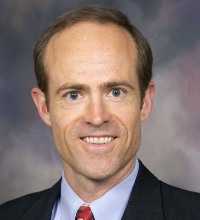The Connect For Health Colorado website was established by the Colorado General Assembly to help Coloradans purchase health insurance and take advantage of any federal subsidies they may qualify for under the Affordable Care Act.

As such, it was supposed to serve all Coloradans.
It was not supposed to become a fundraising tool for progressive, left-leaning interest groups.
But — SHOCKER — that’s exactly what happened under Governor Polis.
Recent filings show that under the leadership of long-time CEO Kevin Patterson, Connect For Health Colorado officials have donated program money to multiple left-wing causes that have nothing to do with providing healthcare to Coloradans.
These include donations for fundraiser galas and other events for these organizations:
- Pueblo Pride by the Southern Colorado Equity Alliance
- Transgender Day of Remembrance
- A block party for the Colorado Immigrants Coalition
- The Changemakers Gala by the Young Invincibles.
This last organization is chaired by the wife of a Colorado State Representative who, coincidentally, just happens to co-chair the House Health and Insurance Committee.
And The Steady, which received an undisclosed amount of Connect for Health Colorado funds, funds training for Democrat politicians and campaign staff.
This cozy relationship between Connect for Health Colorado operatives and partisan groups entirely allied to one side of the aisle reeks of corruption.
Even Kevin Patterson knows it looks bad: he admitted to screwing up, and accepted responsibility. For what it’s worth.
But the fact is, there’s been no accountability yet. Patterson still has his job.
So does his chief finance officer and head auditor.
This isn’t a rookie CEO mistake, either. Patterson has held the CEO role at Connect for Health Colorado for eight years.
And before that, he was the Chief of Staff to Governor Hickenlooper.
So it can’t be that he’s naive.
What’s more likely is this: Patterson is simply too plugged in to Colorado state politics, and has clearly forgotten who he works for.
Meanwhile, the citizens of Colorado are paying him more than $300,000 per year and paying his CFO more than $200,000 per year to look the other way while his underlings funnel cash to partisan causes.
Fortunately, you don’t have to play that game.
 FREE QUOTE
FREE QUOTE
COLORADO HEALTH INSURANCE
Opt Out of Connect For Health Colorado
If you’re a Colorado resident and you’re in reasonably good health, and you don’t rely on Obamacare subsidies to afford a health plan, you have choices!
You can opt out of the bloated, cost-inefficient, and increasingly corrupted Colorado health insurance entirely:
Health sharing is a more affordable alternative to traditional Connect for Health Colorado health insurance policies.
And unlike with ACA-regulated health insurance policies, health sharing plans have no government involvement whatsoever.
I’ve seen enough. Help me escape my Connect for Health Colorado plan.
What is Health Sharing?
Health sharing plans are voluntary, non-profit associations of health-conscious people who share similar values and who agree to help share the medical expenses of other members.
When a health sharing plan member has medical bills above a certain amount (typically a few thousand dollars in any given year) other members pool their resources and help share the costs.
In this way, health sharing members are able to spread their risk across thousands of fellow members – without involving a for-profit insurance company or submitting to onerous Affordable Care Act regulations.
Health sharing plans also don’t have to deal with other regulatory requirements and coverage mandates that add cost but provide little or no actual benefit for most people.
What’s more, health sharing plans cost just a fraction of the monthly cost of unsubsidized traditional Connect For Health Colorado insurance policies – as much as 40 to 50 percent less.
With the cost of insuring a family of four now well exceeding $20,000 per year, according to the Kaiser Family Foundation, families that don’t qualify for an Obamacare subsidy stand to save thousands of dollars per year just by switching to healthsharing.
Many health sharing organizations, but not all, are faith-based. Others are non-denominational, and still others are completely secular.
All of them, however, require members to attest to a statement of shared principles. They all also require members to agree to live healthy lifestyles, which helps keep costs down for all members.
The chief disadvantage with health share ministries is that they typically impose waiting periods before they share costs related to pre-existing conditions.
Health sharing plans also do not qualify for Obamacare subsidies for lower-income people.
For these reasons, health sharing works best for people in good health with no pre-existing conditions that may be subject to waiting periods, as well as for people who don’t qualify for any significant subsidies.
Health Sharing Lets You Choose Your Own Doctor
Currently, the Connect for Health Colorado site is dominated by health maintenance organizations, or HMOs.
These plans manage costs by restricting patients to relatively narrow networks of physicians, clinics, and hospitals who agree to provide services at steep discounts, in return for a steady flow of patient referrals from the plan.
In practice, this means that Connect for Health Colorado plan members with complex medical needs often get locked out of seeing the best specialists, or going to the best hospitals.
Otherwise, they must pay steep out-of-network charges.
In contrast, most health sharing plans allow you to use your plan’s sharing benefits with any doctor or hospital you choose – anywhere in the country.
That is, health share plans let you choose your own doctor.
HMOs don’t. Including the Connect For Health Public Option plans.
Get Government Out of Your Healthcare
Most importantly, switching to health sharing allows individuals to take back control of their healthcare from government officials.
Yes, we have some fantastic public servants in this country at all levels. But when it comes to running vast and complex systems like the healthcare system, government just cannot run it competently.
Even where wrongdoing can be identified, partisan politics means it’s very difficult to hold people accountable or get them removed from their positions.
And when the perpetrator is government, it’s almost impossible for us as individuals to escape their tyranny and graft. We can’t just decide unilaterally to live under a different government.
And government officials are fond of deciding to restrict individual choices.
If you enroll in an Obamacare plan and you decide you don’t like it, you’re stuck. You can’t even just quit and join a new health insurance plan, thanks to the Affordable Care Act. You have to wait until next year, unless you have a qualifying life event that triggers a Special Enrollment Period.
Even if you’re not on Medicaid or Medicare, all private health insurance companies and their customers must deal with significant government meddling and interference.
The best way to preserve liberty and healthcare freedom is to keep government as far away from your healthcare as possible.
Switching to health sharing is a great, affordable way to do just that.
Other ways to reduce or eliminate government involvement in your healthcare:
Contribute to an HSA. Contributions are tax deductible. Growth is tax deferred. Distributions for healthcare expenses are tax-free. And there’s no penalty for distributions over age 65.
Best of all, you can use this money for any healthcare expense you choose, with any provider you choose. You don’t have to worry about HMO narrow networks or other restrictions. You don’t have to worry about whether some insurance bureaucrat will approve the purchase… as long as it’s healthcare related and supports treatment of a specific condition.
Join a Direct Primary Care Practice
Direct Primary Care (DPC) is a healthcare model that prioritizes a direct relationship between patients and primary care providers.
Here’s what makes DPC stand out:
- Membership-Based Approach. Patients pay a flat monthly or annual fee directly to the provider or practice. This fee covers most primary care services, including consultations, visits, and routine care.
- No Insurance Involvement. DPC practices operate outside the conventional insurance system. Since they don’t involve Medicare, Medicaid, or private insurance, the complexities and regulations associated with government-run programs are greatly reduced.
- No Long-Term Commitments. If you don’t like your primary care doctor, you don’t have to wait until open enrollment to find a new one.
- Enhanced Access to Care. Patients typically enjoy more accessible and personalized care. This includes longer appointments, same or next-day visits, and direct communication with healthcare providers.
But you won’t find them listed as authorized care providers in your Connect For Health Colorado/Obamacare HMOs or the Colorado Public Option plans!
DPC doctors don’t even take insurance.
Ready to learn more? Connect with a Personal Benefits Manager to understand how it fits with your overall healthcare strategy, especially if you’re also considering options like health sharing plans or HSAs.
 FREE QUOTE
FREE QUOTE
COLORADO COST-SHARING
What To Do Now
First, select one or more plans from the best health sharing organizations in Colorado to compare.
If you like what you see, you can click through the links to get quotes, and you can self-enroll in minutes.
If you want more personalized service, including assistance researching plans and enrolling, that’s easy, too: Just speak to our Personal Benefits Manager, a ColoHealth health sharing expert.
Unlike traditional health insurance products, which are subject to the Affordable Care Act, Health sharing plans don’t have open enrollment periods. You can enroll in a health sharing plan at any time during the year.
That means you can’t get trapped in a plan you don’t like. If you decide your current plan is not for you, you can switch to a new plan the very next month. You don’t have to wait until next year.
Note: Health sharing plans generally impose waiting periods before they will fully share expenses relating to pre-existing conditions. So while you can switch plans at any time, you should be careful about resetting your pre-existing condition waiting period if you switch to a new plan.
Health sharing works best for those in good health, and for those with few or no pre-existing conditions that may require ongoing care.
For Further Reading: The Top 10 Health Insurance Mistakes People Make|Comparing Christian Health Sharing Ministries in Colorado|Colorado’s “Public Option” Con Job

Wiley Long is the president of ColoHealth, and has been in the health insurance industry since 1987. He received his master’s degree in nutrition and exercise science at Colorado State University, and is passionate about individual healthcare freedom. Read more about Wiley on his Bio page.






